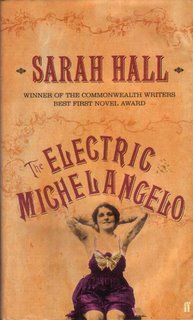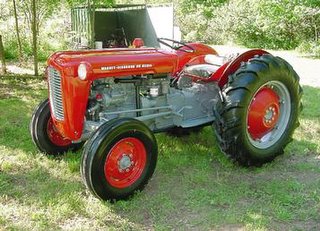Wilbur Wants to Kill Himself
 I don't know how it is, but over the past two or three weeks, I've seen three movies starring Shirley Henderson - first it was Michael Winterbottom's Wonderland which was on TV at some weird time in the morning, then a random video I borrowed (Once Upon A Time in the West Midlands and now this one. Funny thing is, I didn't have any real clue as to who she was, but when I look at her profile, it turns out she's been in loads of movies that I've seen and loved, like 24 Hour Party People, Bridget Jones's Diary and Trainspotting.
I don't know how it is, but over the past two or three weeks, I've seen three movies starring Shirley Henderson - first it was Michael Winterbottom's Wonderland which was on TV at some weird time in the morning, then a random video I borrowed (Once Upon A Time in the West Midlands and now this one. Funny thing is, I didn't have any real clue as to who she was, but when I look at her profile, it turns out she's been in loads of movies that I've seen and loved, like 24 Hour Party People, Bridget Jones's Diary and Trainspotting.She has played some pretty rugged characters, but in this movie, she is just lovely, in fact the whole movie is a very gently told story which deals sensitively with a very serious topic - the title gives much of the game away, but there is an interestingly intersecting story.
It starts with Wilbur (Jamie Sives) trying to kill himself with a mass consumption of drugs and then his head in an oven. An early comedic note is struck when the gas runs out! Find a coin, try again. The scene shifts to the family used bookshop - Wilbur's brother Harbour (Adrian Rawlins) is talking with Alice (Henderson) about the death of his father - who had really intended for Wilbur to get the shop but never changed his will.
Luckily for the development of the movie, Harbour saves Wilbur from killing himself, and gets him into this really horribly antagonistic therapy group, where people like Ruby can say ”why don’t you just die and let someone take your place?” It seems the view is not shared by everyone - Wilbur's therapist offers him somewhere to live and they do briefly get together (but she really is a very strange person, he's better off without her). Instead, he moves in with Harbour, not that that stops him from his “more and more humiliating" efforts to kill himself - I think the most gruesome was when he hanged himself from the clothes drying rails. The back story to this is to do with his mother, who apparently went mad - one night he saw her standing outside the shop, wearing nothing but a cap, and the next day she was found dead in the snow.
Old Wilbur gets some nice lines, although fairly aggressive - he works in a museum, a wee boy wants to hold his hand: “Fuck off. Nancy boy.” Then he has a date, of sorts: she tries licking his ears and he is all “I’d have brought a dog if I wanted that. Get a hold of yourself. Freak”
Alice's story is that she has an adorable wee daughter (Mary), she herself has been a cleaner at the hospital - she finds books lying around which she sells to Harbour. They bond the day she comes into the shop and he finds chewing gum in her hair: it is a very gentle moment when he extracts it. He even seems to try to hook her and Wilbur up, saying he should cook her a duck (“A lot of women really appreciate a nice duck.”) but I'm not sure how genuine his effort was, because next thing we see, they're married and it is clearly Harbour who likes ducks - this becomes a bit of a running gag.
There is a turning point when one of Wilbur's attempts actually works - he is temporarily dead. In a strage twist, he is now thrown out of his suicide group for being "too suicidal". As it turns out, once he's been dead, he doesn't really want to go there anymore, so for the rest of the movie, he is on an upwards movement. At the same time, Harbour finds he is sick; it is cancer and nothing can be done. He finds out by taking a drink with his doctor, the depressive Horst who says “in your condition, won’t make any difference”.
This puts Wilbur in charge of the bookshop - he is so bad at it, than when a fellow comes in for something by Kipling, he's offered a book on pickling instead! Later, this fellow says to Alice “I know what you’re going through. I have a niece who is retarded.”. It turns out, Wilbur is much better with kids; at Mary's birthday party, he's great fun for them, willing to stand on his head upon demand and so on. I think its here that it starts - the growing attraction between Wilbur and Alice - and it is here where the movie really comes into its own. There is a wonderfully tender, yearning quality to their connection, but Harbour is so important, for both of them - Alice: “I love him, have never loved anyone that way”; Wilbur “I’d rather die than lose him - not much for me to say that.” Nice touch.
Then they get the news of his cancer, and there is a kind of acquiescence, even a willing, by him that they should be together, since he's not going to be around much longer. So, he says “Be as nice to Alice as you can possibly be… Its nice that people can get together who don’t have anyone else.” It is a pretty special act on his part to recognise that he needs to step aside, and I'm sure its appreciated all round - insofar as he needs one, there is still a home for him.
They all have one final Christmas together, when Harbour is on day release from the hospital. Wilbur really tries to cook a duck for him but finds the process “so fucking revolting” he can't do it - luckily Harbour will do the cooking.
Overall, suicide is a tough topic to film and get right - I think this movie would have been trite had it tried to simply say that "love of a good woman" is the answer, but it didn't really go there. It was important that Wilbur did in fact die, clinically speaking - it was a form of facing down his dragons, and that enabled him to love.At the same time, there was a delicious humour which never hit a wrong note. The acting was wonerful, and I'm a sucker for the sort of chaotic used bookstore in which the movie was set.





